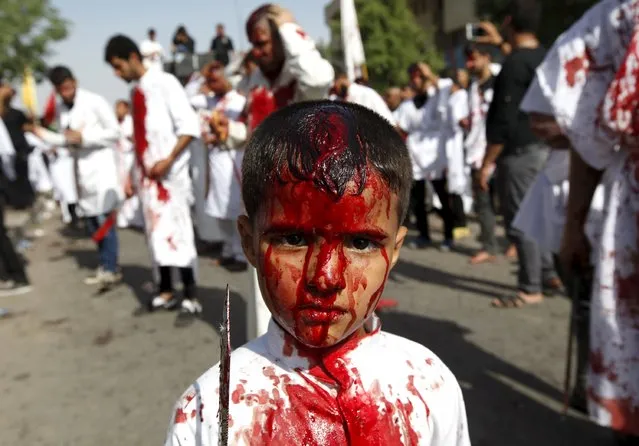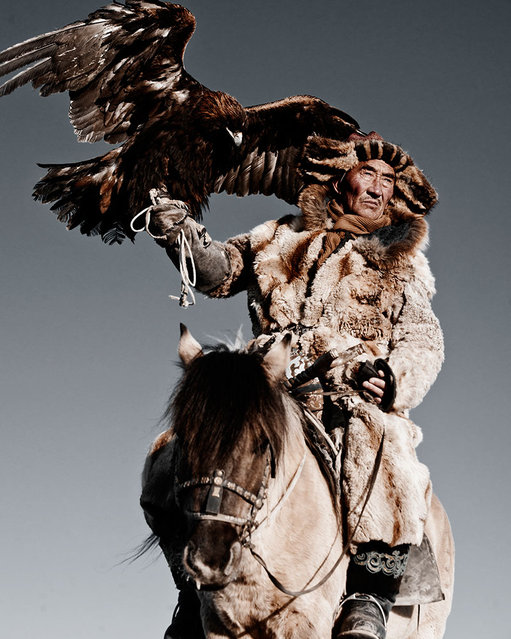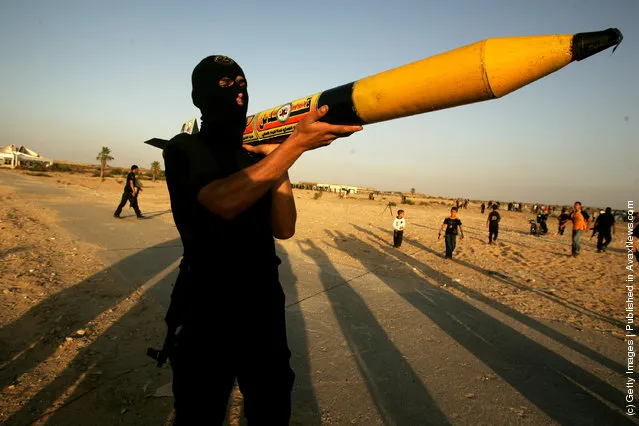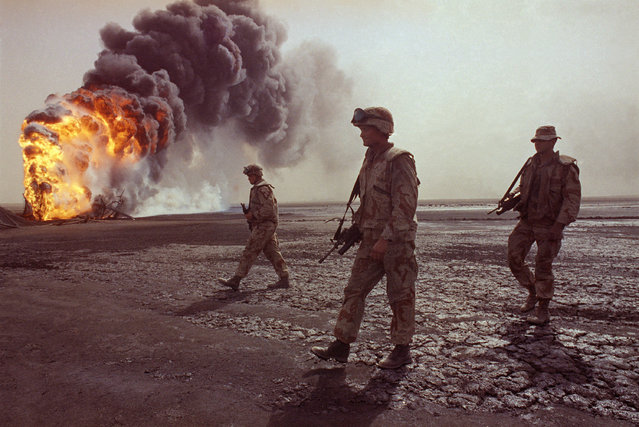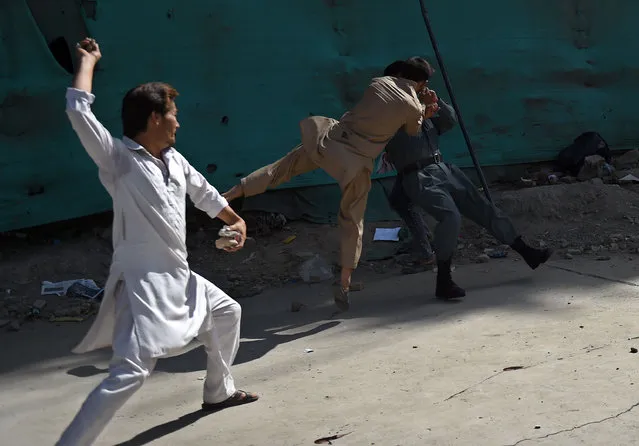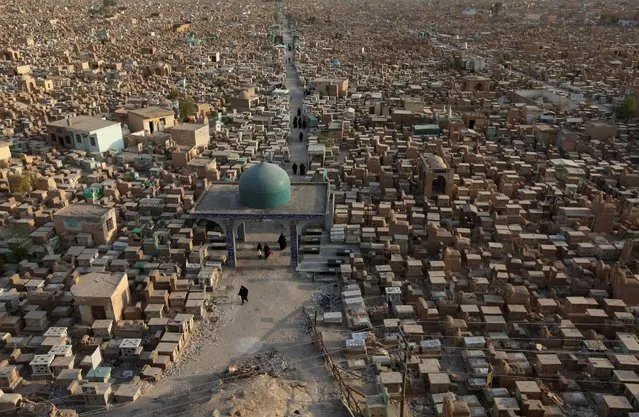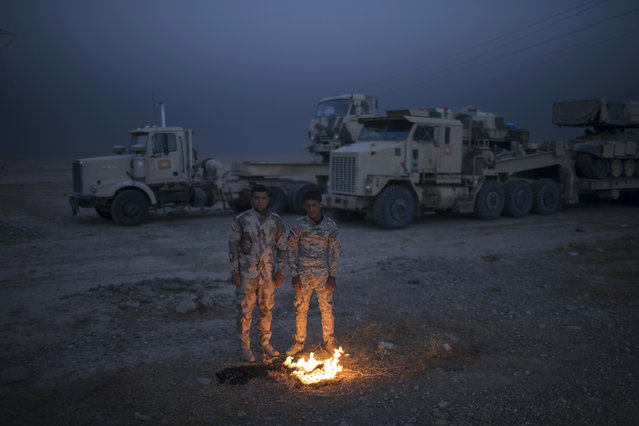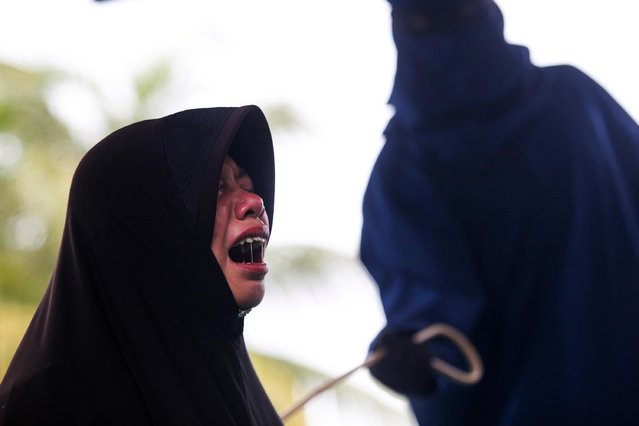
An Acehnese women is whipped in front of the public for violating sharia law in Pidie District on 14 July 2017, Aceh, Indonesia. Aceh is the only one province in Indonesia which has implemented sharia law, which bans sexual contact between men and women who are not married. Whipping is one form of punishment imposed in Aceh for violating Islamic sharia law. (Photo by Oviyandi/Barcroft Images)
15 Jul 2017 08:18:00,post received
0 comments

